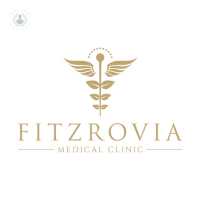What is a skin infection?
There many types of skin infection. The skin is the largest organ of the body and protects the body from infection. It too can become infected by germs, which can leave your skin itchy, or with a rash, or pus and fluid leaking out, or sores that look like blisters.
Some of the most common skin infections include:
- Impetigo
- Boils
- Warts
- Shingles
- Ringworm
- Yeast infection

What are the different types of skin infections?
A skin infection can be split into the four following categories:
- Bacterial infection - such as boils, impetigo, leprosy.
- Viral skin infection - these conditions, shingles, herpes, chickenpox, warts, measles and hand, foot and mouth disease are caused by a virus.
- Fungal infection - caused by a fungus and develops in dark areas of the body, includes athlete's foot, oral thrush, ringworm or nail fungus.
- Parasitic infection - the result of a parasite and includes lice, bedbugs or scabies.
What causes skin infection?
The following can cause skin infection:
- Bacterial - occurs when germs enter the body through a cut or a scratch. It's not always the case, but it depends on whether your immune system is weakened for an infection to develop
- Viral - the commonest viruses come from either herpes, poxvirus or human papillomavirus (HPV)
- Fungal infection - fungi grow in warm, moist places on the body. They tend to occur in people who sweat a lot and who wear tight clothing
- Parasitic - minuscule insects can lay eggs under your skin
How is skin infection diagnosed?
A specialist known as a dermatologist will be able to make an examination of the location and the appearance of your skin infection to determine the type and the possible cause.
How is skin infection treated?
The treatment will depend on the exact type of skin infection. Bacterial infections are commonly treated with a topical cream that can be applied to the skin and oral antibiotics.
Your pharmacist will be able to recommend the best over-the-counter creams for a fungal skin infection. In cases of parasitic infection, your doctor will prescribe topical cream and oral medications that will reduce any inflammation. Antihistamines may also relieve any itching.
11-13-2012 04-26-2023Skin infections
Dr Robin Russell-Jones - Dermatology
Created on: 11-13-2012
Updated on: 04-26-2023
Edited by: Sophie Kennedy
What is a skin infection?
There many types of skin infection. The skin is the largest organ of the body and protects the body from infection. It too can become infected by germs, which can leave your skin itchy, or with a rash, or pus and fluid leaking out, or sores that look like blisters.
Some of the most common skin infections include:
- Impetigo
- Boils
- Warts
- Shingles
- Ringworm
- Yeast infection

What are the different types of skin infections?
A skin infection can be split into the four following categories:
- Bacterial infection - such as boils, impetigo, leprosy.
- Viral skin infection - these conditions, shingles, herpes, chickenpox, warts, measles and hand, foot and mouth disease are caused by a virus.
- Fungal infection - caused by a fungus and develops in dark areas of the body, includes athlete's foot, oral thrush, ringworm or nail fungus.
- Parasitic infection - the result of a parasite and includes lice, bedbugs or scabies.
What causes skin infection?
The following can cause skin infection:
- Bacterial - occurs when germs enter the body through a cut or a scratch. It's not always the case, but it depends on whether your immune system is weakened for an infection to develop
- Viral - the commonest viruses come from either herpes, poxvirus or human papillomavirus (HPV)
- Fungal infection - fungi grow in warm, moist places on the body. They tend to occur in people who sweat a lot and who wear tight clothing
- Parasitic - minuscule insects can lay eggs under your skin
How is skin infection diagnosed?
A specialist known as a dermatologist will be able to make an examination of the location and the appearance of your skin infection to determine the type and the possible cause.
How is skin infection treated?
The treatment will depend on the exact type of skin infection. Bacterial infections are commonly treated with a topical cream that can be applied to the skin and oral antibiotics.
Your pharmacist will be able to recommend the best over-the-counter creams for a fungal skin infection. In cases of parasitic infection, your doctor will prescribe topical cream and oral medications that will reduce any inflammation. Antihistamines may also relieve any itching.


Recurrent vaginal skin infections: Could diabetes be the cause?
By Mr Mahantesh Karoshi
2024-11-21
Leading consultant gynaecologist and women’s health expert Mr Mahantesh Karoshi sheds light on the causes of recurrent vaginal skin infections and explains how undiagnosed diabetes may be related in this informative article. See more


Eczema: Detailed insight on the triggers, treatment and possible complications
By Dr Rachel Fisher
2024-11-12
Eczema is a skin condition that comes in various forms and can be caused by different factors. In this article, highly respected dermatologist Dr Rachel Fisher provides expert insight into different types of eczema, their symptoms, and causes. She also highlights potential triggers that patients should be mindful of. Furthermore, she discusses various treatment options, including the latest approaches yielding positive outcomes for patients. See more
Experts in Skin infections
-
Dr Rachel Fisher
DermatologyExpert in:
- Basal cell carcinoma
- Cryotherapy
- Psoriasis
- Eczema
- Alopecia
- Skin infections
-
Dr Sabina Ghani
DermatologyExpert in:
- Cosmetic dermatology
- Skin allergies
- Eczema
- Acne
- Skin infections
- Skin tag removal
-
Dr Barbara Matuszkowiak
GP (general practitioner)Expert in:
- Health check up (health screening)
- Women's health
- Mental health assessment
- Paediatrics
- Skin infections
- Skin diseases
-
Dr Lucy Dormer
GP (general practitioner)Expert in:
- Skin diseases
- Skin infections
- Skin allergies
- Mental health assessment
- Health check up (health screening)
- Paediatrics
- See all

Fitzrovia Medical Clinic
Fitzrovia Medical Clinic
Fitzrovia Hospital, 13-14 Fitzroy Square
No existe teléfono en el centro.
By using the telephone number provided by TOP DOCTORS, you automatically agree to let us use your phone number for statistical and commercial purposes. For further information, read our Privacy Policy
Top Doctors

New Victoria Hospital
New Victoria Hospital
184 Coombe Lane West, Kingston upon Thames, KT2 7EG
No existe teléfono en el centro.
By using the telephone number provided by TOP DOCTORS, you automatically agree to let us use your phone number for statistical and commercial purposes. For further information, read our Privacy Policy
Top Doctors

Derma Reading
Derma Reading
Shepherds Hill, Woodley, RG6 1FE
No existe teléfono en el centro.
By using the telephone number provided by TOP DOCTORS, you automatically agree to let us use your phone number for statistical and commercial purposes. For further information, read our Privacy Policy
Top Doctors
-
Fitzrovia Medical Clinic
Fitzrovia Hospital, 13-14 Fitzroy Square , Central LondonExpert in:
- Adult Diabetes
- Chronic diseases
- Women’s health
- Paediatrics
- Health check up
- Sexual health
-
New Victoria Hospital
184 Coombe Lane West, Kingston upon Thames, KT2 7EG, South LondonExpert in:
- Cardiology
- General Surgery
- Orthopaedic surgery
- Breast augmentation
- Pain management
- Spine
-
Derma Reading
Shepherds Hill, Woodley, RG6 1FE, ReadingExpert in:
- Acne
- Skin Cancer
- Paediatric Dermatology
- Moles
- Aesthetic Medicine
- Hair loss
- Most viewed diseases, medical tests, and treatments
- Migraine
- Autoimmune diseases
- Joint pain
- Nutrition
- Weight loss injections
- Endermologie
- Polynucleotides
- Bariatric surgery
- Skin biopsy
- One Stop Breast Clinic







